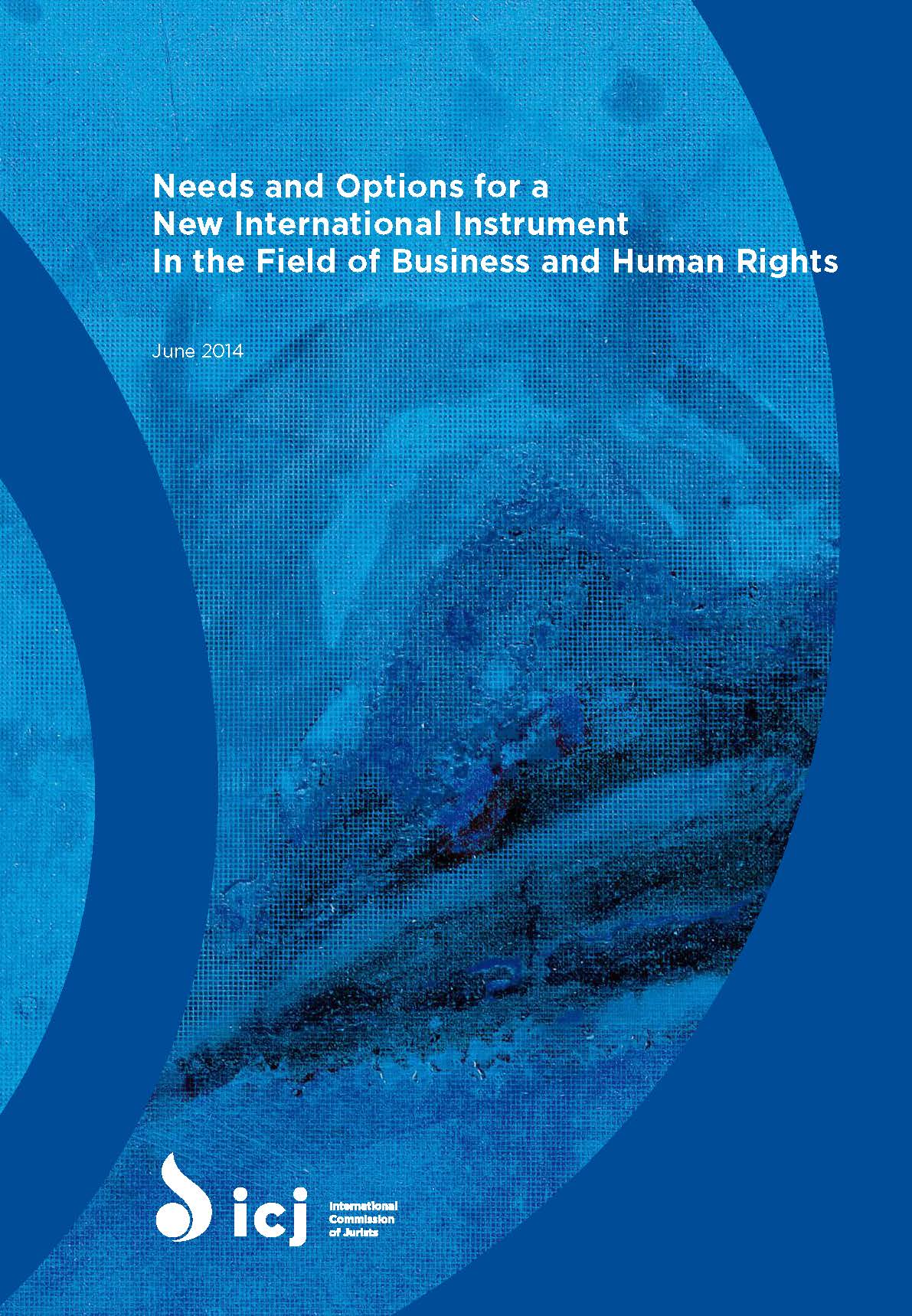The report is the result of a consultation process and ICJ’s internal discussions and research on the adoption of standards on business and human rights.
Although the adoption of the Guiding Principles on Business and Human Rights and the continued attention devoted by the Human Rights Council to the issue of business and human rights represent positive developments in this sphere, the international normative framework for safeguarding against human rights violations resulting from the activities of business enterprises still remains underdeveloped.
In response to demands from civil society, independent experts and States for a stronger and more effective approach in the field of business and human rights, and a global call for a legally binding instrument in this regard, the ICJ conducted research and consultations with numerous stakeholders with a view to:
- identifying existing lacunae in the prevailing business and human rights protection framework;
- elucidating the need for a new international legal instrument to address the lacunae identified; and
- outlining options regarding the nature, scope, elements and appropriate forum for developing a new international instrument. The present report contains the results of that process.
The report concludes that notwithstanding the progress achieved in international and domestic legal standards and practice, there are substantive areas in the sphere of business and human rights that remain in dire need of international regulation, particularly the need for ensuring legal accountability and access to remedies, which must be addressed on priority.
The report reveals that the proposal for a legally binding instrument currently enjoys widespread support from a diversity of stakeholders, particularly civil society, and could be an effective instrument to address the existing deficiencies in regulation and the related lapses in protection.
Since skepticism expressed by certain stakeholders regarding the idea of a legally binding instrument is grounded on fears that it will jeopardise the implementation of the Guiding Principles and the achievements accomplished as a result of their adoption by consensus, the new process of standard setting should involve all the relevant stakeholders and be carried out in a manner that mitigates or eliminates any negative impact in this regard.
While the elaboration of a legally binding instrument in the sphere of business and human rights will be a complex task, and instant results may be elusive, this should not serve as a deterrent, particularly since the international community has undertaken similar if not more complex tasks in the past. Further in the area of business and human rights, there is now substantive accumulated experience and models at the national and international levels from which inspiration can be drawn to develop innovative solutions to address existing deficiencies in the business and human rights protection framework.
BHR-Needs international instrument-Publications-report-2014-ENG (full text in pdf)
BHR-Needs international Instrument-Exec Sum-Publications-report-2014 (full text in pdf)
Universal-Needs & Options international inst-Publications-Report-2015-SPA (full text in pdf)

